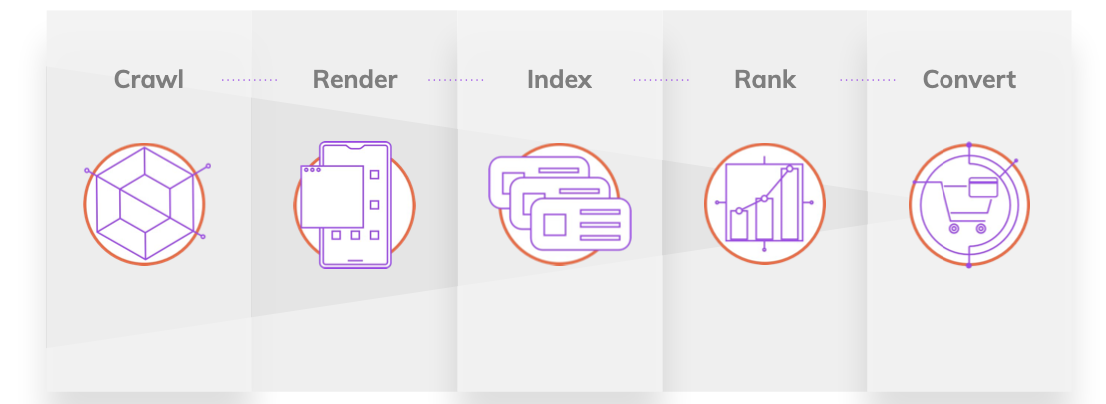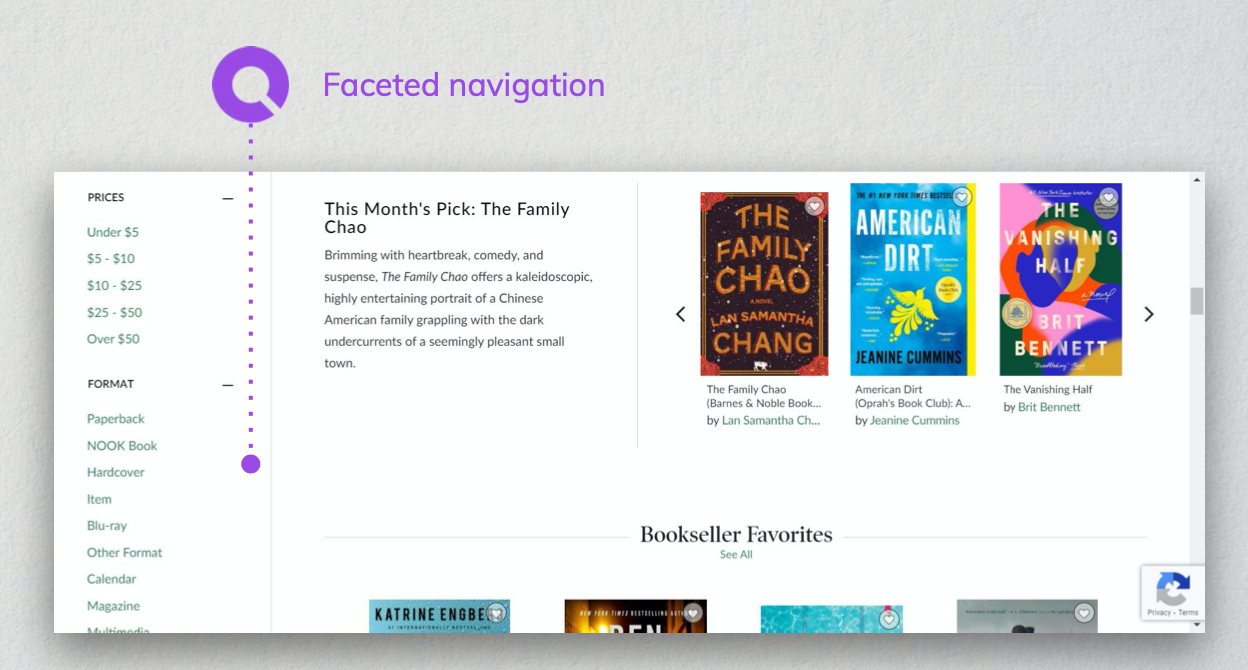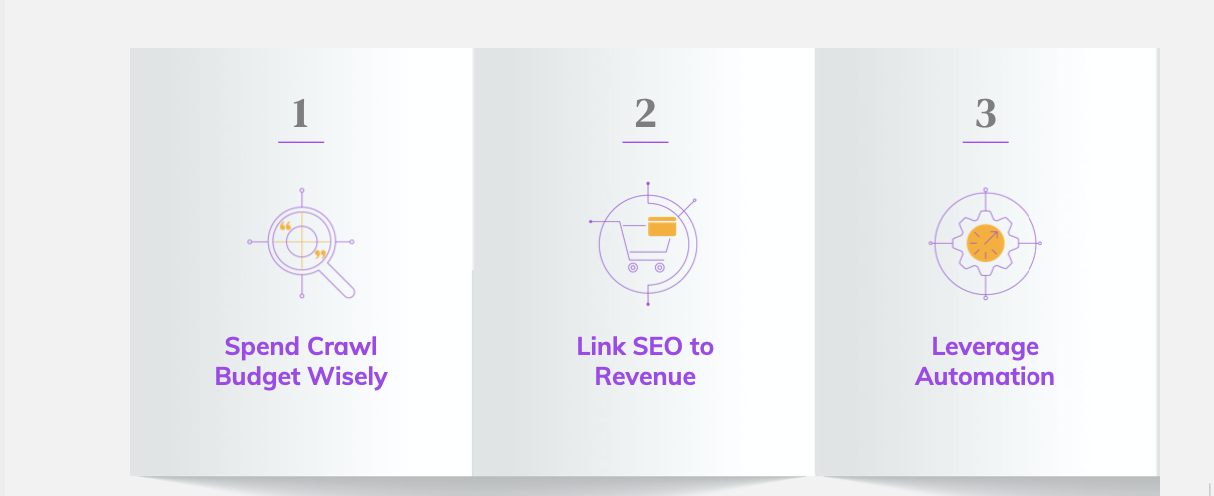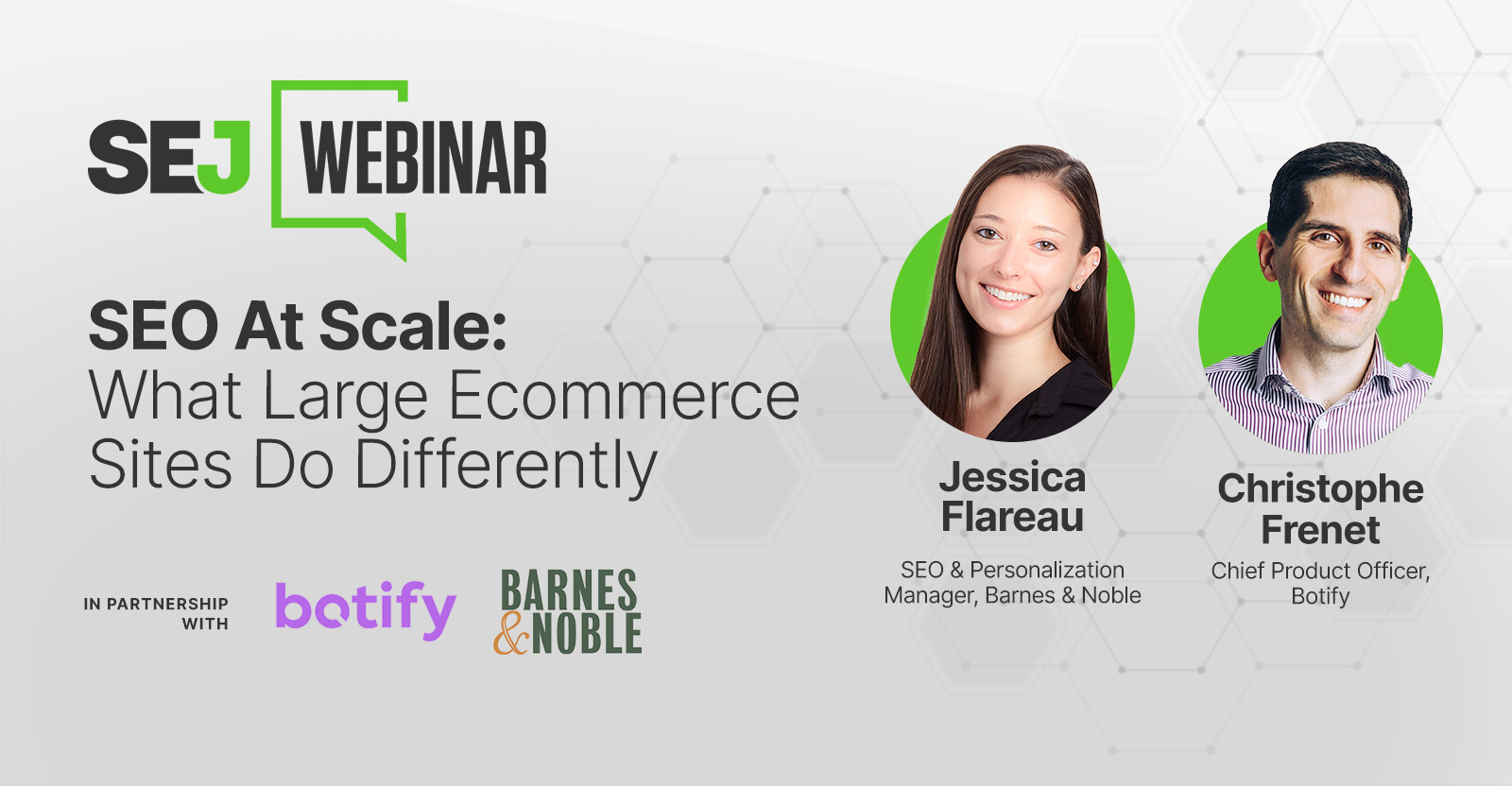Does it seem harder to attract new customers lately?
Ecommerce is filled with so many incredible opportunities, yet there is so much competition.
The good news – we know it’s possible to thrive!
Large ecommerce sites are doing it – you’ve seen the proof.
Successful, large ecommerce companies approach their SEO in a way that allows them to grow, even with the rising costs of customer acquisition.
Now, you can thrive, too.
On March 9, I moderated a sponsored webinar presented by Jessica Flareau, SEO & Personalization Manager at Barnes & Noble, and Christophe Frenet, Chief Product Officer at Botify.
They provided comprehensive insights for scaling your ecommerce SEO efforts.
Here is a quick summary of the webinar. To access the entire presentation, complete the form.
What Qualifies As A Large Ecommerce Site?
Large ecommerce sites are defined as sites that have more than 1 million URLs.
BN.com has 9 million URLs, while the biggest ecommerce sites in the world have 250 million + URLs.
Since there are so many pages, it’s no longer possible for those large sites to optimize every single page manually.
This means that large ecommerce sites need to automate a great deal more.
This is one task you can start today to help scale your SEO efforts.
[Learn how Barnes & Noble leverages automation for SEO] Instantly access the webinar →
Why Search Engines & Large Sites Struggle
Search engines have to go through hundreds of billions of pages on the web.
Because of limited resources, search engines have to determine how much time they will spend on every single website.
This means that not every page of a large website is noticed nor indexed by search engines.
That’s where crawl budgets come in.
What Is A Crawl Budget?
Crawl budget is the amount of attention your site receives from search bots: how many pages are crawled in a given timeframe.
The bigger your website is, the more chances that the limitations of a crawl budget impact your website.
In short, there is a good chance that your full site may not be crawled by a search bot.
If you have a large number of URLs, your crawl budget may be used up before all your pages are seen.
Crawl Budget Limitations
Based on Botify’s analysis of 6.2B Googlebot requests across 413M web pages, 77% of large website pages are not getting any traffic from search engines.
Why is that?
Search engines have trouble finding every page on your site just because the web is too big.
[Discover how to get the most out of your limited crawl budget] Instantly access the webinar →
How To Balance User Experience & Crawl Budget
To optimize the crawl budget, you need to consider both user experience and bots.
Barnes & Noble recommends working with product engineering to solve this.
Start by:
- Including revenue impact in project requests.
- Educating the team on SEO.
- Implementing automation to manage larger sites.
Barnes & Noble also keeps its sights on revenue impact as it optimizes for search.
[Find out how they do it easily with automation] Instantly access the webinar→
Understanding The SEO Funnel
These days, focusing only on your website’s crawl budget and visibility in search is not enough.
Understanding the SEO funnel will help you optimize your crawl budget and overall scale strategy.
You also need to consider the following as you scale your strategy:
 Botify, March 2022
Botify, March 2022You can probably imagine that this means you have to make a lot of optimizations on your websites.
[Find out how to easily optimize each step] Instantly access the webinar →
How Are Large Ecommcere Companies Handling SEO Scale?
When it comes to smart, scalable SEO foundations and strategies, large ecommerce companies:
- Focus on the top of the funnel. Bigger sites tend to leverage heavier technical SEO at the top of the funnel. This way, these optimizations impact the overall discoverability of the site and act as the foundation of all other SEO initiatives.
- Utilize more technical resources. Larger sites work closely with product engineering to implement optimizations. Large ecommerce companies know that if you want to implement changes without needing vast development resources, automation is vital.
- Use Faceted Navigation. An efficient way to help you and bots navigate and inside a website.
 Botify, March 2022
Botify, March 2022[Find out how Faceted Navigation can help your site] Instantly access the webinar →
Barnes & Noble handles SEO at scale in terms of:
- Managing site performance.
- Faceted navigation.
- Prioritizing pages.
Learn The SEO Strategies For Scale
The following enterprise ecommerce SEO strategies will help you:
 Botify, March 2022
Botify, March 2022[Get the strategy now] Instantly access the on-demand webinar →
SEO Practices Imperative To Ecommerce Success In 2022
- Always invest in fundamentals, such as fixing errors and tracking keywords.
- Keep tabs on site speed and its impact on UX.
- Make sure your content is unique.
[Slides] SEO At Scale: What Large Ecommerce Sites Do Differently
Here’s the presentation:
SEO At Scale: What Large Ecommerce Sites Do Differently from Search Engine Journal
Join Us for Our Next Webinar!
How Much Revenue Are You Losing From Organic Traffic Declines?
What’s the best way to explain loss in organic traffic?
Learn the revenue impact of traffic loss, the key attributes that triggered it, and a way forward to recouping it in our next webinar on March 16 at 2 p.m. ET.
Image Credits
Featured Image: Paulo Bobita/Search Engine Journal
